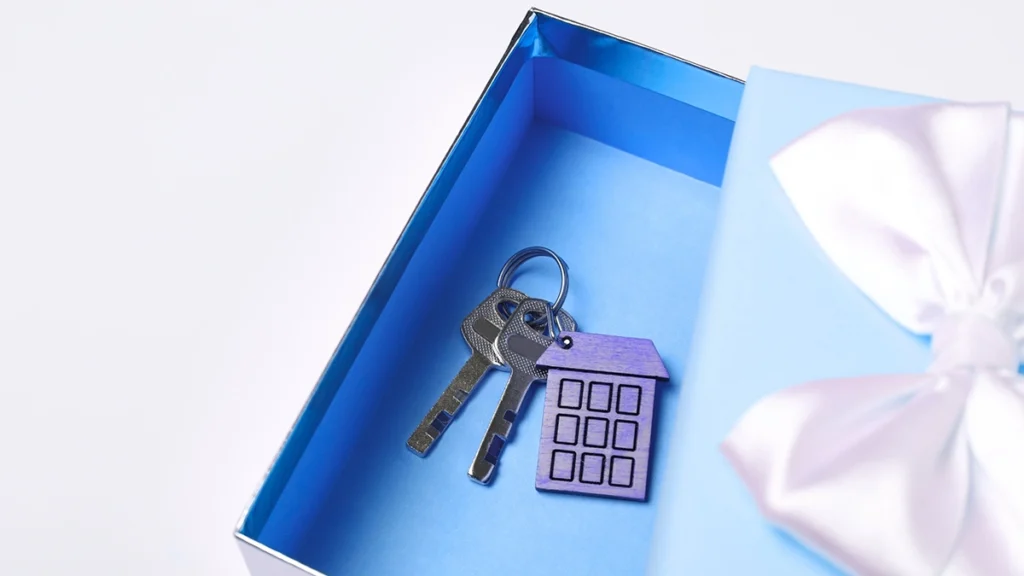Every home carries a story. Maybe it is where your children took their first steps or where your family gathered for holidays. Planning ahead helps protect those memories and the people who share them.
The Lady Bird Deed, also called an Enhanced Life Estate Deed, has helped countless families do just that. It keeps homeowners in control during life and ensures their property passes easily to loved ones.
In the real stories that follow, you will see how families in Florida, Texas, Michigan, and other states used this deed to protect what matters most and avoid unnecessary stress.
A Tool That Keeps Families Together
Probate court often brings tension when families are already grieving. Court costs and attorney fees build up, and months of waiting can lead to frustration. Homeowners who record a Lady Bird Deed help their families avoid those challenges.
Carlos, a 67-year-old in Texas, is one example. When he passed away, his daughter recorded his death certificate and an affidavit. Within weeks, the home was in her name. She said she was relieved not to spend a year in probate like her cousins did when their father died without planning. Carlos kept full control of his property during life, and his choice gave his daughter peace and financial stability when she needed it most.
Anne, a retired teacher in Florida, had three children. She worried they might argue over her home after she was gone and wanted to prevent that. She used a Lady Bird Deed and named all three children as equal beneficiaries. She also kept her right to sell or refinance if needed. When Anne passed away, the title updated immediately. Her children could decide together whether to keep or sell the home. Her foresight protected family harmony and gave them closure without court involvement.
Flexibility During Life
Many people hesitate to plan because life changes. Children grow, families evolve, and finances shift. Traditional life estate deeds take away control once recorded, but a Lady Bird Deed does not. It provides what are known as “enhanced powers,” meaning homeowners can sell, refinance, or change beneficiaries whenever they choose.
Maria, a 70-year-old in Florida, illustrates this benefit. She first named her two sons as beneficiaries, then later added her granddaughter after a family discussion. With her Lady Bird Deed, she could make that change without asking anyone’s permission. She felt peace knowing she was not locked into earlier choices, and her family knew probate would not delay their inheritance.
George, a 70-year-old in Michigan, thought about moving closer to his grandchildren. He wanted to protect his daughter’s future but still keep his freedom. His Lady Bird Deed let him name his daughter while maintaining ownership. He could sell if he moved, giving him both flexibility now and security later.
A Simple Solution Compared to Alternatives
Families often explore different estate planning tools. Trusts can manage multiple assets but are more expensive to set up. Joint ownership may seem simple but can expose property to a child’s financial or legal problems. The Lady Bird Deed focuses only on real estate. It is affordable, direct, and flexible.
Ellen, age 72 in Michigan, reviewed her options carefully. A living trust was too costly, while a Lady Bird Deed achieved the same probate-free result at a lower price. She chose the deed. When she passed, her children inherited the home without court delays or extra fees. Her decision saved time and money, and it avoided the risks of joint ownership that she saw affect a neighbor’s family. Because the deed kept the home solely in her name, her property remained protected until her passing.
Stories of Generational Impact
The benefits often extend beyond children and into future generations. Many families want to keep homes, farms, or cottages in the family, and a Lady Bird Deed makes that possible by avoiding probate delays.
Harold, 66 in West Virginia, recorded a Lady Bird Deed naming his daughter. Years later, she inherited the home directly and used that stability to help her children pay for college. Harold’s planning supported not only his daughter but also his grandchildren. She said it felt like her father was still taking care of them.
Martha, 71 in Vermont, wanted her son to keep the family farmhouse without facing court delays. She kept the right to live there for life. When she passed away, her son said the transfer was so smooth he could hardly believe it. The county updated the title with only a death certificate and affidavit. The farmhouse stayed in the family, free of stress and expense.
Important Legal Details
A Lady Bird Deed has two key legal features. First, it overrides a will for the property it covers. Even if a will names someone else, the deed controls. Families should ensure the deed reflects their wishes and update it when plans change. Second, Lady Bird Deeds are only recognized in certain states, including:
- Florida
- Texas
- Michigan
- West Virginia
- Vermont
- North Carolina
In these states, many families rely on the deed as a practical and affordable way to pass property. In states where it is not available, similar options like trusts or transfer-on-death deeds may offer the same peace of mind.
Why These Stories Matter
All of these stories share a common thread. Families want clarity, simplicity, and control. They want to save money, avoid tension, and protect the people they love. The Lady Bird Deed is not the only estate planning option, but it is one of the most effective for real estate. Each story shows how this simple document helps families preserve harmony and continue their legacy with ease.
Key Takeaways
- Lady Bird Deeds keep families out of probate court, saving time and money.
- Homeowners keep full control during life, with the ability to sell, refinance, or change beneficiaries.
- The deed overrides a will for the property it covers, so accuracy and updates matter.
- Lady Bird Deeds are recognized in Florida, Texas, Michigan, West Virginia, Vermont, and North Carolina.
- Family stories show how this deed protects harmony, stability, and long-term security.



